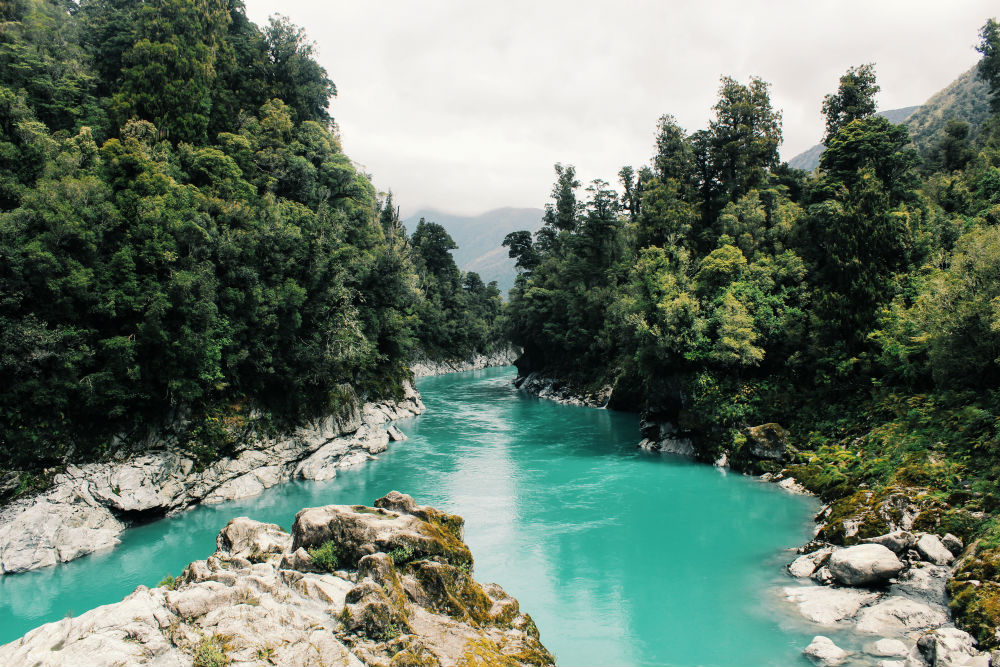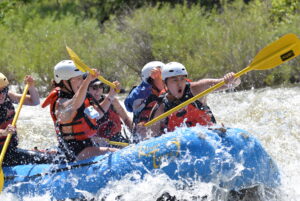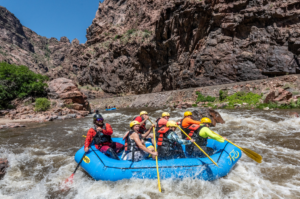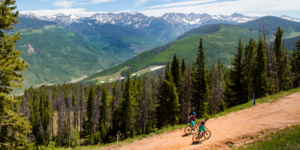The success of countless cities and industries depend on the health of our rivers, which provide us with drinking water, power, irrigation, and thriving ecosystems of fish and other aquatic life.
Rivers and Aquatic Species in Jeopardy
Unfortunately, we’ve been taking our rivers for granted for far too long. According to the EPA’s Natural Rivers and Streams Assessment, 46% of America’s rivers are in poor biological condition and nearly a quarter contain unsafe levels of bacteria that can cause disease and illness in humans.
Most of these problems come from pollution. Allowing fertilizers and waste water to enter our waterways raises the levels of phosphorous and nitrogen, something environmental scientists call the “nutrient problem.” Too much of these elements causes naturally growing algae in rivers to grow too abundantly and too fast. To support their rapid growth, the algae blooms suck up abnormally high amounts of oxygen from the water, and over time, the river doesn’t have enough oxygen left to support other animals and bacteria.
On top of that, the algae produce toxins and bacteria that can be dangerous to humans who eat fish from contaminated sources or come into direct contact (through swimming or drinking) with tainted water.
Everyday Ways to Reduce Pollution in Rivers
That all sounds pretty grim, and it’s true that unless we all start taking responsibility for our rivers, their health (and ours) will keep getting worse. The good news, however, is that we can all make a difference. Here are three EPA-approved tips for everyone who wants to take a stand for clean, healthy rivers:
Scoop your pet’s poop.
Lots of hiking trails and canyons prohibit dogs, and as frustrating as that may be, those rules are usually designed to protect nearby waterways. Animal waste (and human waste, for that matter) contain nitrogen and phosphorous that can make the nutrient problem worse if any of it ends up in a nearby river. To prevent this, always make sure to clean up after your pets. This also applies in your own backyard—even if you don’t live near a river, the rain can wash your pet’s waste into storm drains.
Buy nontoxic soaps and detergents.
If you’re like most Americans, your home is full of cleaners. Think about the products you use to clean your clothes, your dishes, your appliances, your floors, your car, and even your hair and body—that’s a lot of chemicals and it’s worth taking a good, hard look at the ones you encounter (and rinse into the water) every day. The EPA recommends buying phosphate-free cleaners that will keep phosphorous levels in water from getting too high. It’s also probably better for your health, too—high contact with and consumption of phosphates has been linked to rashes, dizziness, scratchy throats, and even cancer.
Take it easy with the fertilizer.
A nice green lawn may look nice, but before you load up on fertilizer, think of the fish whose habitats are dying because the chemicals in that fertilizer wash into our water supply. You don’t have to give up on having a nice, healthy lawn and garden, but try to use as little as possible. Instead, try planting native plants that don’t require as much artificial help, or use natural compost from your kitchen and yard clippings to support plant growth. If you must use some fertilizer, try not to do so if there are windy or rainy days in the forecast.
Get Involved
In addition to these practical tips for your home and yard, there are many ways to get involved in the fight to protect our rivers at the local, state, and national levels. For more information, check out local volunteer and activism opportunities available through organizations like the EPA and the National Wildlife Foundation.
Together, we can continue the important work of cleaning up our rivers. With dedication and hard work from people who love them, we can make sure the millions of miles of our nation’s rivers stay beautiful, productive, and enjoyable for generations to come.
















